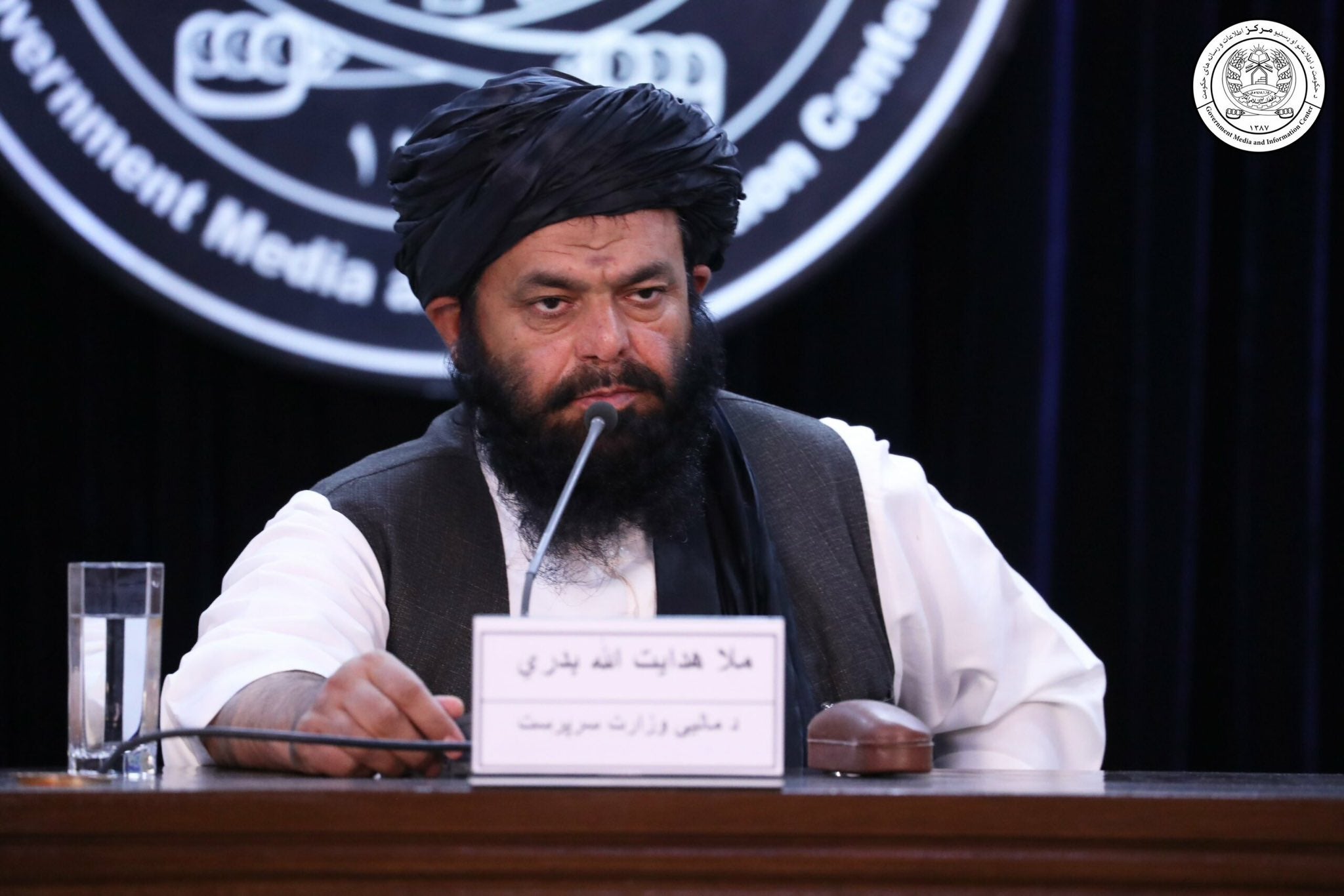Close aide to Taliban’s notorious ‘one-eyed mullah’ named leader of Afghan central bank
Afghanistan’s new central bank chief served as an adviser to Mullah Mohammad Omar

Your support helps us to tell the story
From reproductive rights to climate change to Big Tech, The Independent is on the ground when the story is developing. Whether it's investigating the financials of Elon Musk's pro-Trump PAC or producing our latest documentary, 'The A Word', which shines a light on the American women fighting for reproductive rights, we know how important it is to parse out the facts from the messaging.
At such a critical moment in US history, we need reporters on the ground. Your donation allows us to keep sending journalists to speak to both sides of the story.
The Independent is trusted by Americans across the entire political spectrum. And unlike many other quality news outlets, we choose not to lock Americans out of our reporting and analysis with paywalls. We believe quality journalism should be available to everyone, paid for by those who can afford it.
Your support makes all the difference.A Taliban leader slapped with sanctions by the United Nations will become the acting head of Afghanistan’s central bank, the militant group said.
The appointment to the central bank, called Da Afghanistan Bank, was announced on Twitter on Wednesday by Taliban spokesperson Zabiullah Mujahid.
“Mullah Hidayatullah Badri, the former acting head of the ministry of finance, has been appointed as the acting head of Afghanistan Bank,” he said.
The former finance minister oversaw budgets after the Taliban wrested control of the country from the Western-backed administration in 2021. He has already taken up his new role, finance ministry spokesman Ahmad Wali Haqmal said.
A prominent financial mind for the Taliban, the new national bank chief had earlier served as an adviser to wanted terrorist and senior Taliban leader Mullah Mohammad Omar, who was confirmed dead in 2013.
In a ‘wanted’ poster released by the Federal Bureau of Intelligence, Mullah Omar has earlier been described having suffered a shrapnel wound, making him blind in one eye.
He was wanted by the US administration through the Rewards for Justice programme before his death.
Mr Badri, also known as Gul Agha, has been accused of collecting money for suicide attacks in Afghanistan’s Kandahar and distributing funds among the Taliban fighters and their families.
He was sanctioned by the UN Security Council in July 2010.
In further punitive action, the UK’s Office of Financial Sanctions Implementation had sanctioned the new Afghanistan central bank chief in 2010 and in 2021.
The Taliban official also “reportedly facilitated the movement of people and goods to Taliban training camps in December 2005, and later travelled to obtain weapon parts in late 2006”, according to the Counter Terrorism project.
In a slow revival of Afghanistan’s economy, the country’s central bank has suffered financial headwinds, with international nations recognising the Taliban’s rulers as only a caretaker government.
Foreign aid to the nation had stopped after the Taliban takeover as well.
Governments across the world slapped stringent sanctions, halted bank transfers and froze billions of Afghanistan’s currency reserves in a display of their refusal to work with the Taliban, given their hardline rule in the late 1990s and consistent refusal to provide education and employment to girls and women.
In September last year, the US treasury and state departments said Afghanistan’s central bank, which had $7bn in frozen funds as of February this year, “must demonstrate that it has the expertise, capacity, and independence to responsibly perform the duties of a central bank”.
It came after the US treasury said it would move that money to a Swiss-based trust beyond the Taliban’s reach.
“Robust safeguards have been put in place to prevent the funds from being used for illicit activity,” the departments had said in a joint statement.
In February this year, a US district court judge refused to allow victims of the 9/11 terrorist attack to seize assets worth $3.5bn (£2.8bn) belonging to Afghanistan’s central bank, citing the illegitimacy of the Taliban rule which is not recognised by the Joe Biden administration.
No nation has vouched for the Taliban as Afghanistan’s legitimate rulers after they stormed to power and toppled the Ashraf Ghani administration in August 2021.





Join our commenting forum
Join thought-provoking conversations, follow other Independent readers and see their replies
Comments